
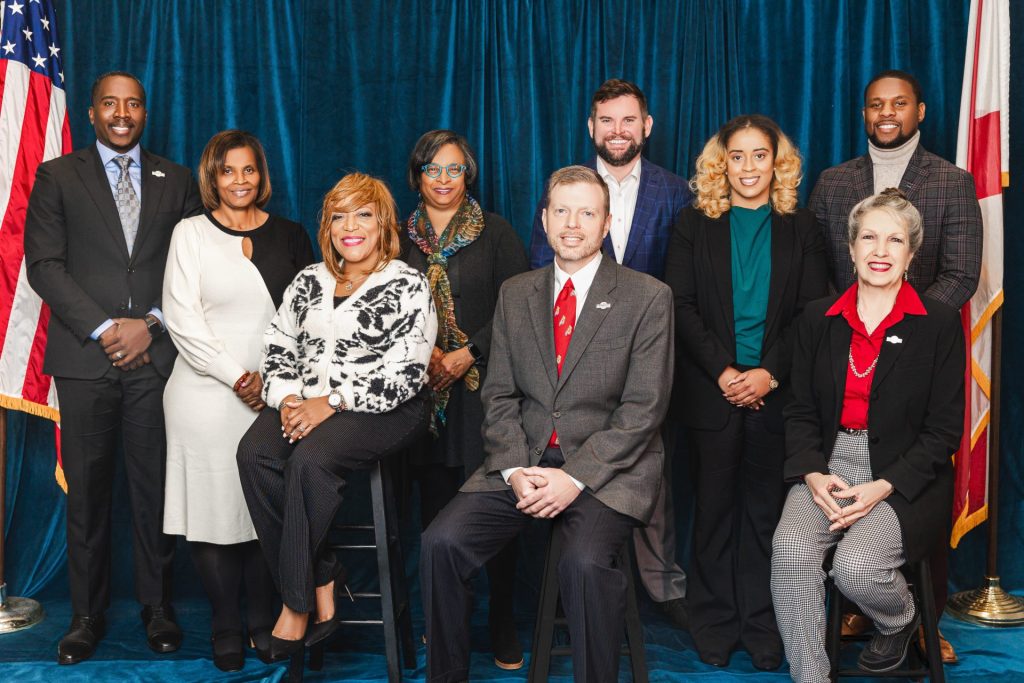
The American Rescue Plan Act (ARPA) was a major piece of legislation signed into law by President Joe Biden on March 11, 2021, in response to the COVID-19 pandemic. It was designed to provide financial relief and support to individuals, businesses, and governments affected by the economic and public health challenges posed by the pandemic. Part of ARPA’s provisions included funding for state and local governments, which was distributed to help them respond to the pandemic’s impact.
Here are some key details about the American Rescue Plan Act and how money was distributed to city governments:
Funding Allocation: ARPA allocated a substantial amount of funding to state and local governments. In total, the act provided approximately $350 billion in aid to state and local governments to address the economic and public health impacts of the COVID-19 pandemic.
City Government Allocation: The funding for city governments was distributed based on a formula that took into account factors such as population and poverty rates. This formula aimed to ensure that cities of different sizes and needs received an appropriate share of the funds. It’s important to note that ARPA funds were not restricted to cities alone but were also distributed to counties, tribes, and other local governments.
Use of Funds: The funds provided through ARPA were intended to be used for a wide range of purposes related to pandemic response and recovery. This included but was not limited to:
- Supporting public health efforts, such as COVID-19 testing, vaccination distribution, and contact tracing.
- Addressing negative economic impacts, including assistance to individuals and businesses.
- Replenishing revenue lost by local governments due to the pandemic.
- Investing in water, sewer, and broadband infrastructure improvements.
- Funding educational initiatives, including K-12 schools and higher education.
- Mitigating the impact of the pandemic on vulnerable populations and underserved communities.
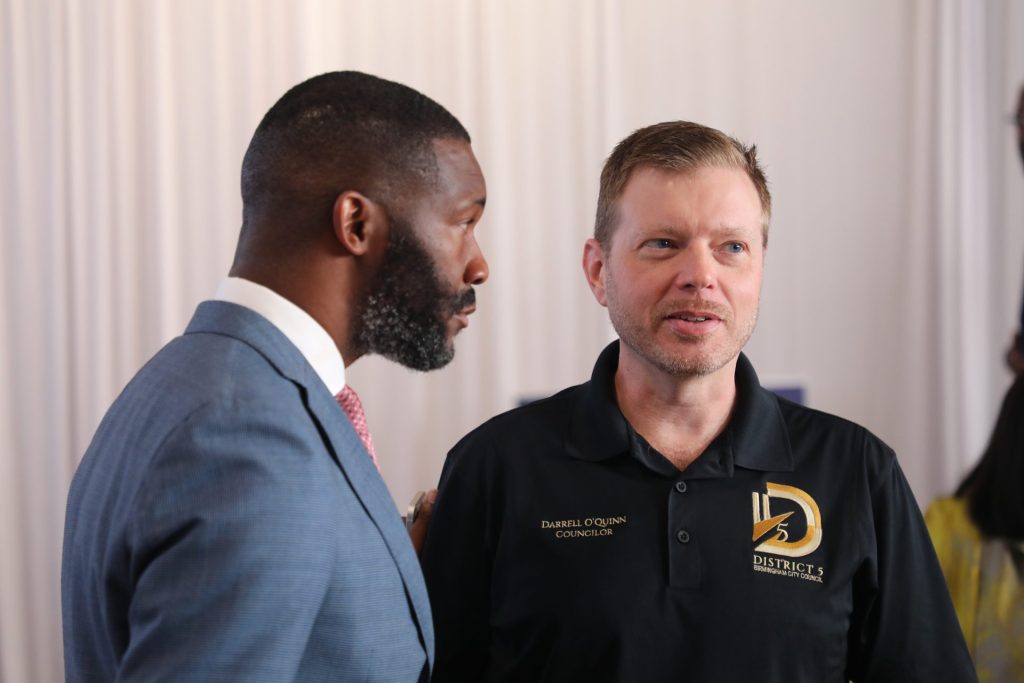
| The Act provided city governments with flexibility in how they could use the funds, allowing them to prioritize their specific needs and challenges related to ongoing recovery efforts. ARPA funds were made available for use over an extended period through the end of 2024, allowing city governments to plan and implement initiatives over a multi-year timeframe. Following the passage of the American Rescue Plan Act in 2021, the City of Birmingham, Alabama received over $140 million from the federal government. Each City Council District Office received $3 million in funds to distribute to projects and initiatives in their districts. Here is a breakdown of how the ARPA funds have been distributed as of September 15th, 2023: |
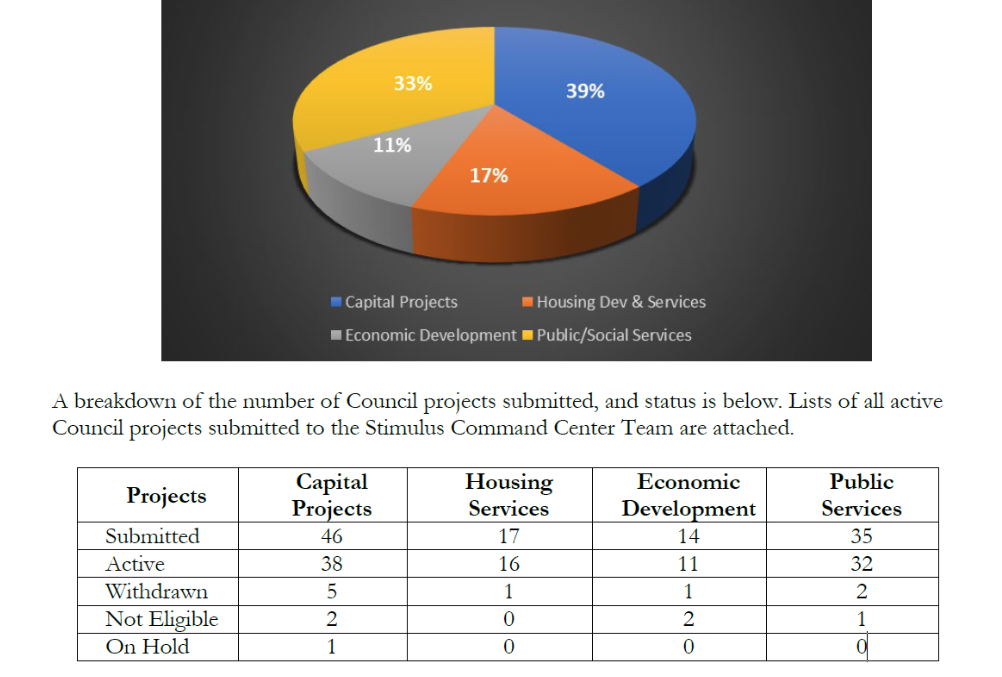
The Birmingham City Councilors have utilized their ARPA funds in a wide variety of ways thus far. From expanding broadband to underserved communities, to contributing to rail infrastructure safety improvements, to mental health services. Here is a breakdown of how each office has allocated their ARPA funds as of September 15, 2023:
DISTRICT 1
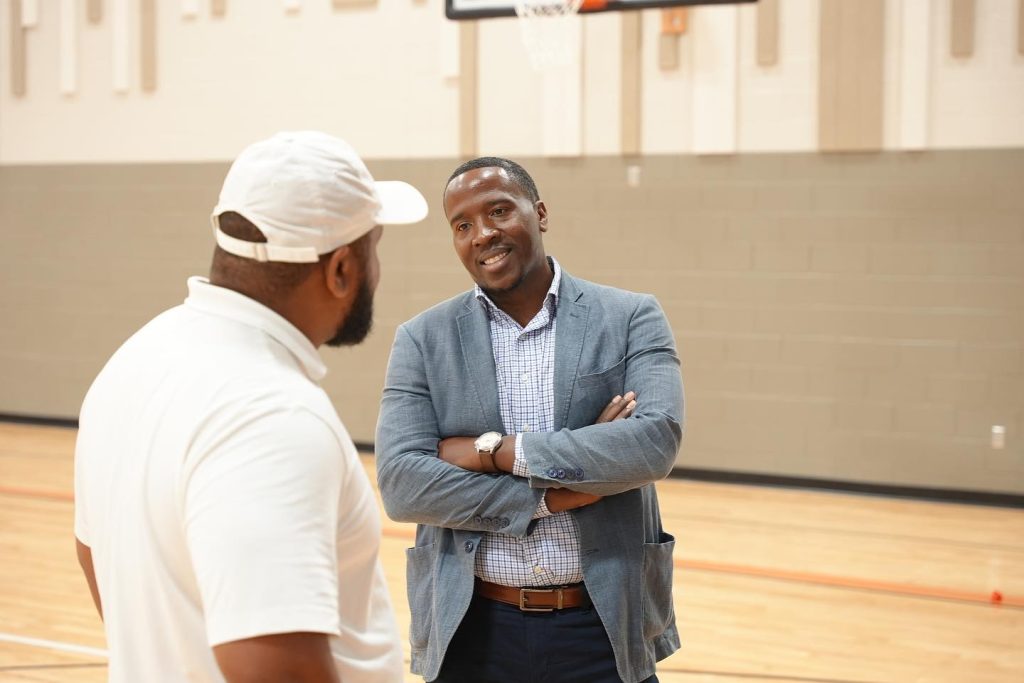
- $890,000 for Huffman Ball Park Lighting and Field Upgrades
- $350,000 for Park Improvements for Tom Bradford and East Pinson Valley
- $50,000 (split between Districts 1, 4, 5) 4th Ave/Civil Rights District small business cpacity building program
- $25,000 YWCA Women Work Program (Split between Districts 1, 4)
- $70,000 Birmingham Urban League Workforce Development (split between Districts 1, 4, 5)
- $25,000 Leaders of Excellence Program
- $250,000 District 1 Public Safety Cameras
- $25,000 Prescott House Child Advocacy Center
- $25,000 Lovelady Center Medical Clinic Relief
- $275,000 The Birmingham/Aspen Institute Justice and Governance Partnership (split between Districts 1, 6, 8, 9)
- $35,000 Children's Village (split between Districts 1, 4, 7)
- $130,000 STREAM Coders of Tomorrow (STREAM Innovations, split between Districts 1, 4, 6)
- $345,000 Birmingham Tool Bank (split between districts 1, 4, 6, 7, 8, 9)
- $150,000 One Place: COVID Domestic Violence Impact and Evidence-Based Strategies (split between Districts 1, 4, 8)
- $150,000 Build Up (split between Districts 1, 4, 6, 8)
DISTRICT 2
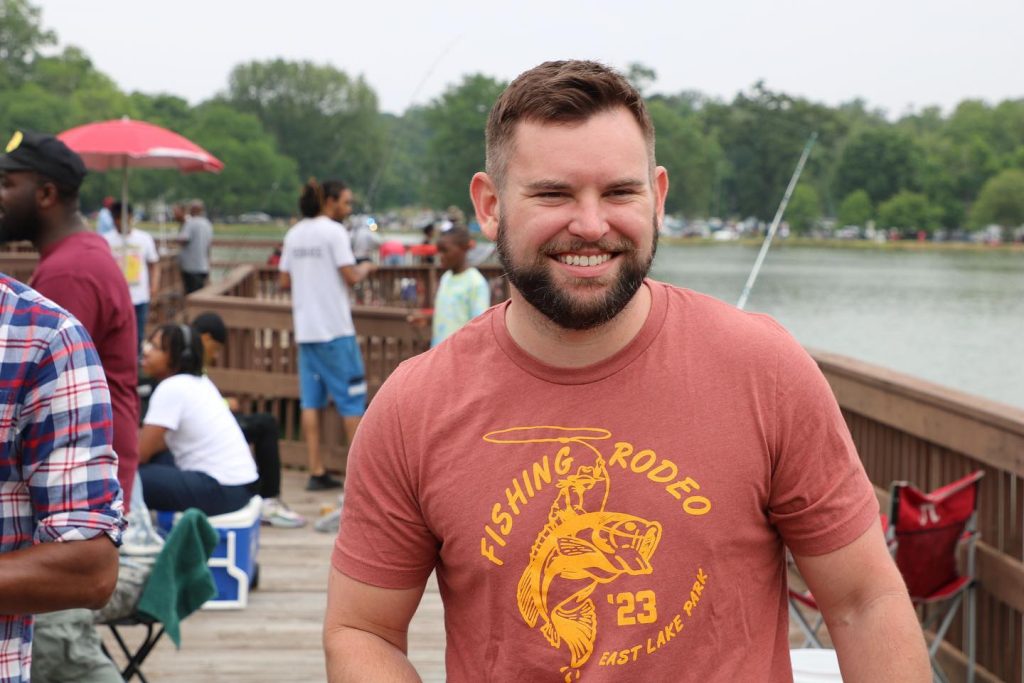
- $170,000 for Montclair Road Drainage Ditch Improvements
- $250,000 for drainage improvements around the district
- $750,000 Redevelopment of Eastside Park
- $30,000 Birmingham Zoo Sidewalk installation
- $400,000 Clairmont Walking Trail extension project
- $2,000,000 (split between districts 2 and 3) Shades Crest Walking Trail
- $70,000 ZOOM Motorsports
- $305,000 Jones Valley Teaching Farm, Food Access Workforce Development (split between Districts 2, 4, 5, 6, 8, 9)
DISTRICT 3
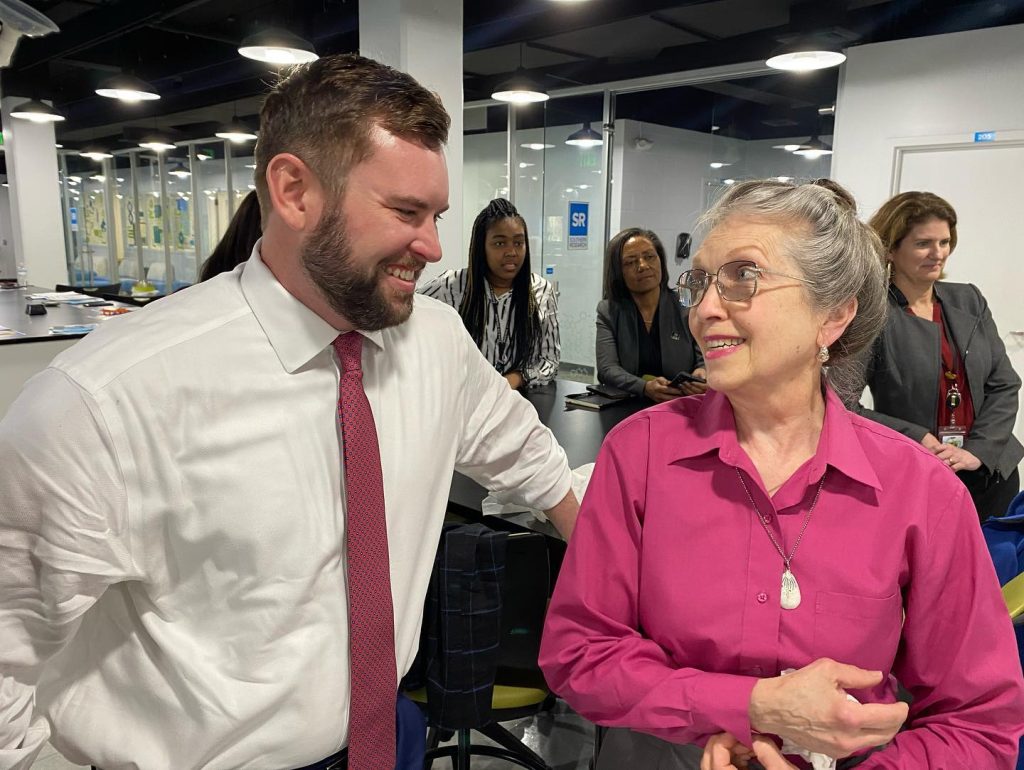
- $2,000,000 for Caldwell Park Stormwater Drainage Project
- $2,000,000 (split between districts 2 and 3) Shades Crest Walking Trail
DISTRICT 4
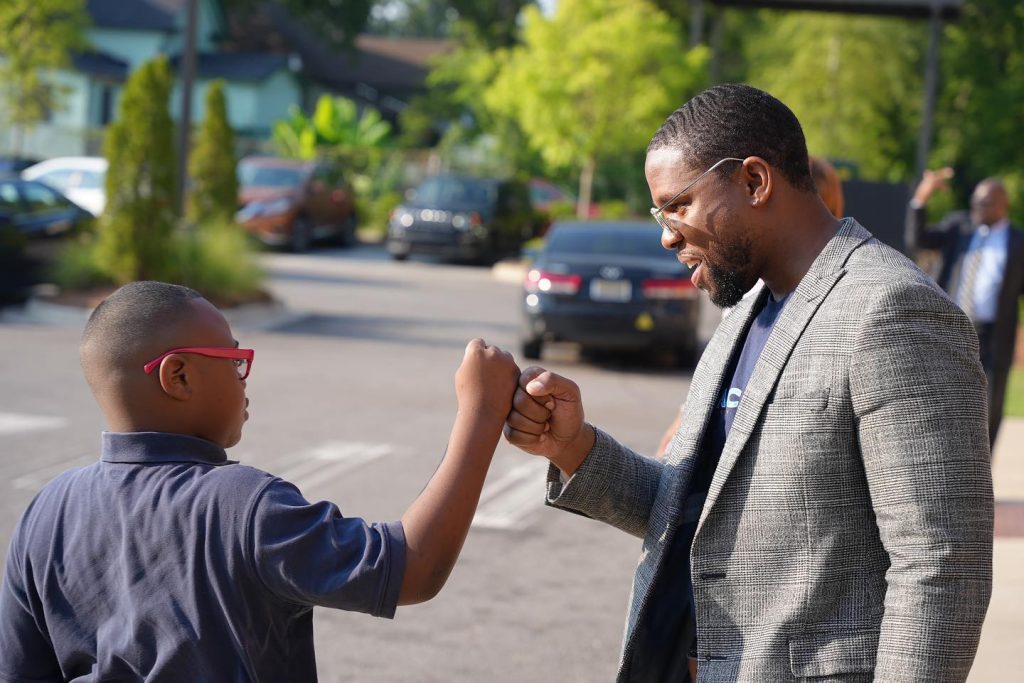
- $400,000 Pine Knoll Vista Capital Project
- $150,000 Willow Wood Recreation Center Improvements
- $35,000 Pine Knoll Vista Walking Trail
- $35,000 Stockham Park Walking Trail in Kingston
- $200,000 Eastlake Park Rehabilitation
- $125,000 (Districts 5 and 4) For Railroad Safety Improvements, Harris Homes
- $450,000 (split between districts 4, 6, 9) Roof hardening and repairs
- $800,000 (split between districts 4 and 9) Health Housing Initiative
- $100,000 Head of House Program
- $50,000 (split between Districts 1, 4, 5) 4th Ave/Civil Rights District small business cpacity building program
- $25,000 YWCA Women Work Program (Split between Districts 1, 4)
- $70,000 Birmingham Urban League Workforce Development (split between Districts 1, 4, 5)
- $52,685 Birmingham Public Library Mobile
- $100,000 Open Broadband Expansion Collegeville
- $35,000 Children's Village (split between Districts 1, 4, 7)
- $130,000 STREAM Coders of Tomorrow (STREAM Innovations, split between Districts 1, 4, 6)
- $345,000 Birmingham Tool Bank (split between districts 1, 4, 6, 7, 8, 9)
- $305,000 Jones Valley Teaching Farm, Food Access Workforce Development (split between Districts 2, 4, 5, 6, 8, 9)
- $150,000 One Place: COVID Domestic Violence Impact and Evidence-Based Strategies (split between Districts 1, 4, 8)
- $150,000 Build Up (split between Districts 1, 4, 6, 8)
DISTRICT 5
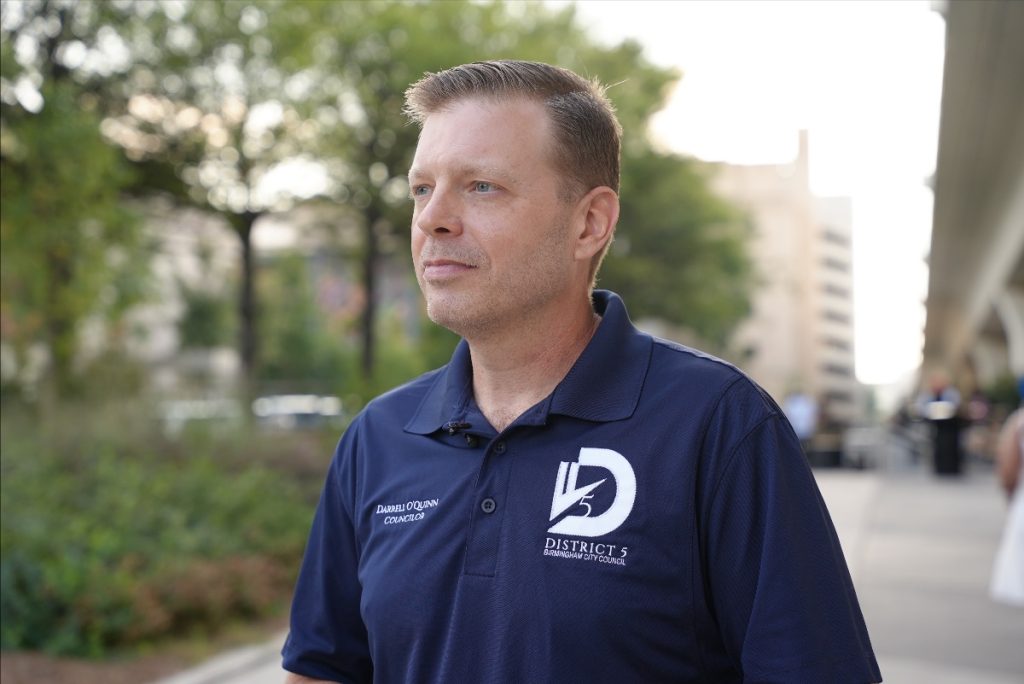
- $25,000 for LED Light Maintenance Projects
- $141,000 Lewis Park Renovation
- $100,000 (split between Districts 8 and 5) Smithfield Fitness Center
- $350,000 (split between Districts 8 and 5) for Jefferson County Memorial Project, Linn Park
- $125,000 (split between Districts 5 and 4) For Railroad Safety Improvements, Harris Homes
- $300,000 for 56th Street South Sidewalks
- $50,000 Barrett Elementary Sidewalk repairs/replacements
- $50,000 East Lake Neighborhood Sidewalk repairs (3rd Ave. and 73rd St. S)
- $500,000 Land Bank Authority Title Clearance
- $500,000 Housing support and home repair in District 5
- $20,000 Civil Rights District Safety Plan
- $25,000 Small Business Rental Assistance
- $27,500 District 5 Small Business Grant Program
- $50,000 Alabama/Lyric Theater Infrastructure Funding
- $150,000 Tech Birmingham Upskill Partnership Initiative
- $50,000 (split between Districts 1, 4, 5) 4th Ave/Civil Rights District small business cpacity building program
- $70,000 Birmingham Urban League Workforce Development (split between Districts 1, 4, 5)
- $50,000 BCRI library renovations
- $100,000 Hammer Math Workforce Development
- $200,000 YMCA Youth Center Playground and STEM Classroom
- $50,000 East Lake Initiative, Thrive Program
- $50,000 Dropping Science Exhibit, McWayne Center
- $305,000 Jones Valley Teaching Farm, Food Access Workforce Development (split between Districts 2, 4, 5, 6, 8, 9)
DISTRICT 6
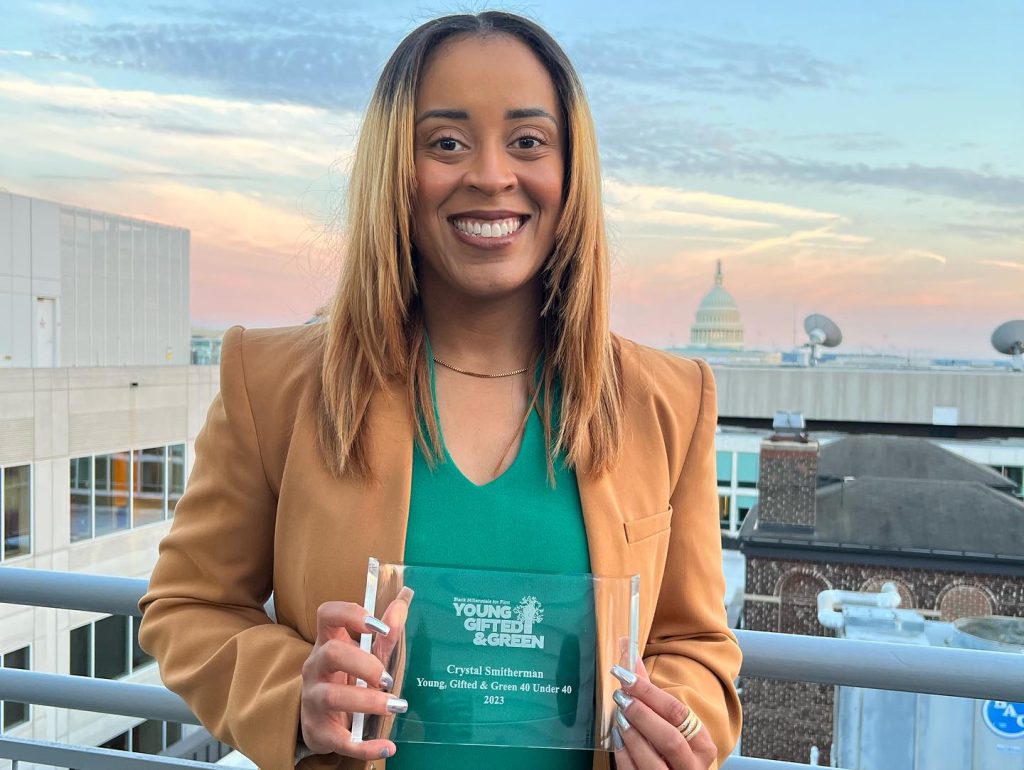
- $117,645 Woodward Park Renovation
- $40,000 Lowery Park Renovation (new dugout and lighting)
- $175,835 West End Sidewalk Improvements
- $50,000 Five Points South Sidewalk repairs
- $270,000 (split between Districts 6,7,8) Valley Creek Rails to Trails project
- $50,000 for Demolition of Houses near Woodward Park
- $200,000 Home repair program (Mason City, Titusville, West End)
- $750,000 Arlington West End Mixed Use Development
- $450,000 (split between districts 4, 6, 9) Roof hardening and repairs
- $750,000 Satellite Workforce Development Headquarters
- $125,000 Turning vacant lots into Green Infrastructure in District 6
- $100,000 Health and Social Service expansion
- $20,000 WiFi for District 6 Recreation Centers
- $45,000 Girls Inc.
- $400,000 Community Counseling Program, Black Women's Mental Health Institute (split between districts 6 and 9)
- $100,000 Titusville Cultural Arts Center
- $275,000 The Birmingham/Aspen Institute Justice and Governance Partnership (split between Districts 1, 6, 8, 9)
- $130,000 STREAM Coders of Tomorrow (STREAM Innovations, split between Districts 1, 4, 6)
- $345,000 Birmingham Tool Bank (split between districts 1, 4, 6, 7, 8, 9)
- $305,000 Jones Valley Teaching Farm, Food Access Workforce Development (split between Districts 2, 4, 5, 6, 8, 9)
- $150,000 Build Up (split between Districts 1, 4, 6, 8)
DISTRICT 7
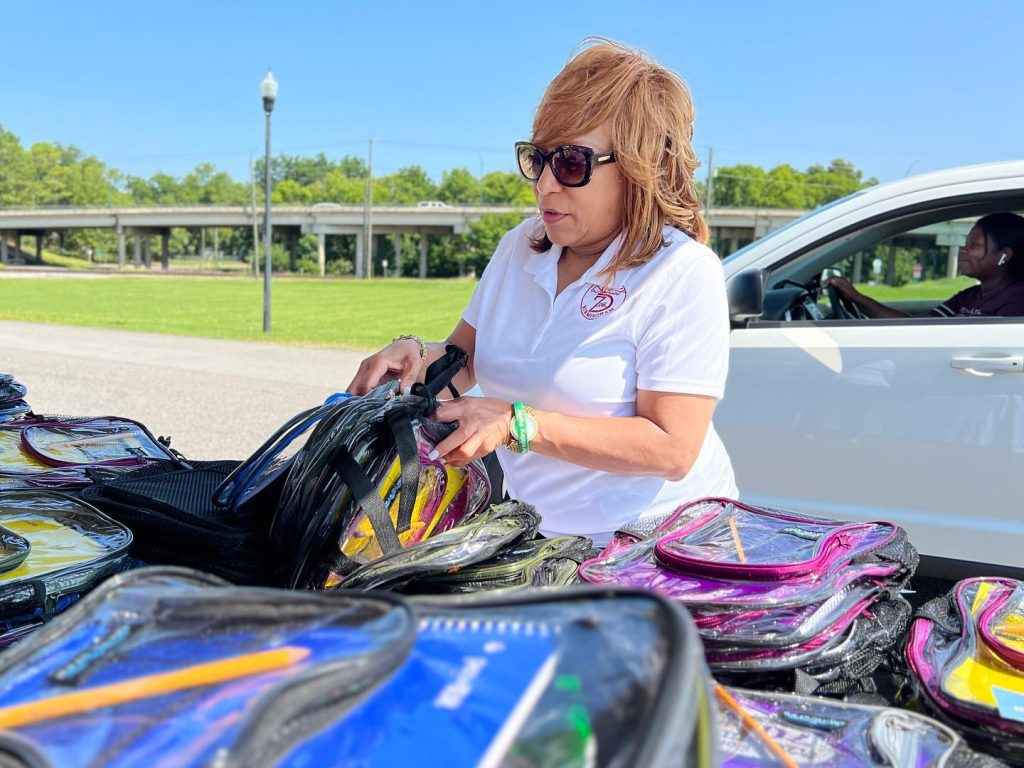
- $700,000 Drainage Repairs for Wenonah Road, 35th St. SW, Garrison Ave.
- $441,000 Wiggins Park improvements and upgrades
- $314,000 Germania Park improvements and upgrades
- $270,500 Oxmoor Park upgrades
- $270,000 (split between Districts 6,7,8) Valley Creek Rails to Trails project
- $300,000 Jones Valley Affordable Housing
- $290,000 Nehemiah's Neighborhood Network (West End Hills)
- $35,000 Children's Village (split between Districts 1, 4, 7)
- $345,000 Birmingham Tool Bank (split between districts 1, 4, 6, 7, 8, 9)
DISTRICT 8
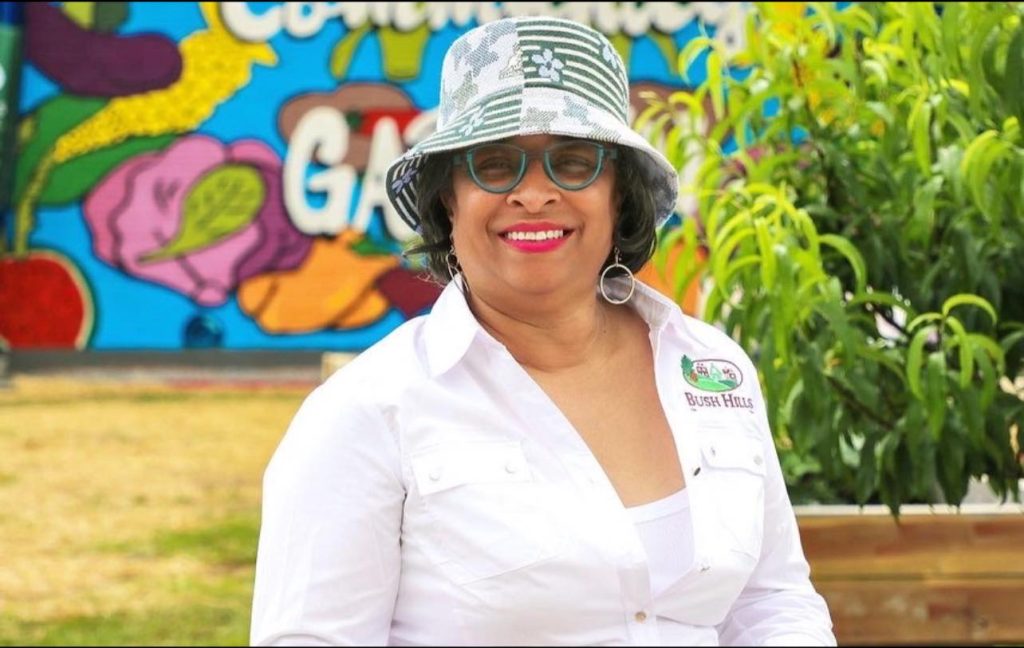
- $450,000 Belview Heights Gateway Project
- $181,000 District 8 Tree Canopy Restoration
- $25,000 Accessibility improvements for Red Mountain Park
- $100,000 (Districts 8 and 5) Smithfield Fitness Center
- $350,000 (Districts 8 and 5) for Jefferson County Memorial Project, Linn Park
- $270,000 (split between Districts 6,7,8) Valley Creek Rails to Trails project
- $340,000 for Rising West Princeton affordable housing
- $370,000 Ensley Town Home rehab project
- $250,000 Small Grants to COVID-impacted Arts and Culture enterprises
- $100,000 UAB Arts
- $100,000 After School and Summer Enrichment (AG Gaston B&G Club)
- $110,000 Technology Upgrade for Birmingham Land Bank Authority
- $100,000 Brother Let's Talk free counseling services
- $100,000 The Literacy Council
- $275,000 The Birmingham/Aspen Institute Justice and Governance Partnership (split between Districts 1, 6, 8, 9)
- $345,000 Birmingham Tool Bank (split between districts 1, 4, 6, 7, 8, 9)
- $305,000 Jones Valley Teaching Farm, Food Access Workforce Development (split between Districts 2, 4, 5, 6, 8, 9)
- $150,000 One Place: COVID Domestic Violence Impact and Evidence-Based Strategies (split between Districts 1, 4, 8)
- $150,000 Build Up (split between Districts 1, 4, 6, 8)
DISTRICT 9
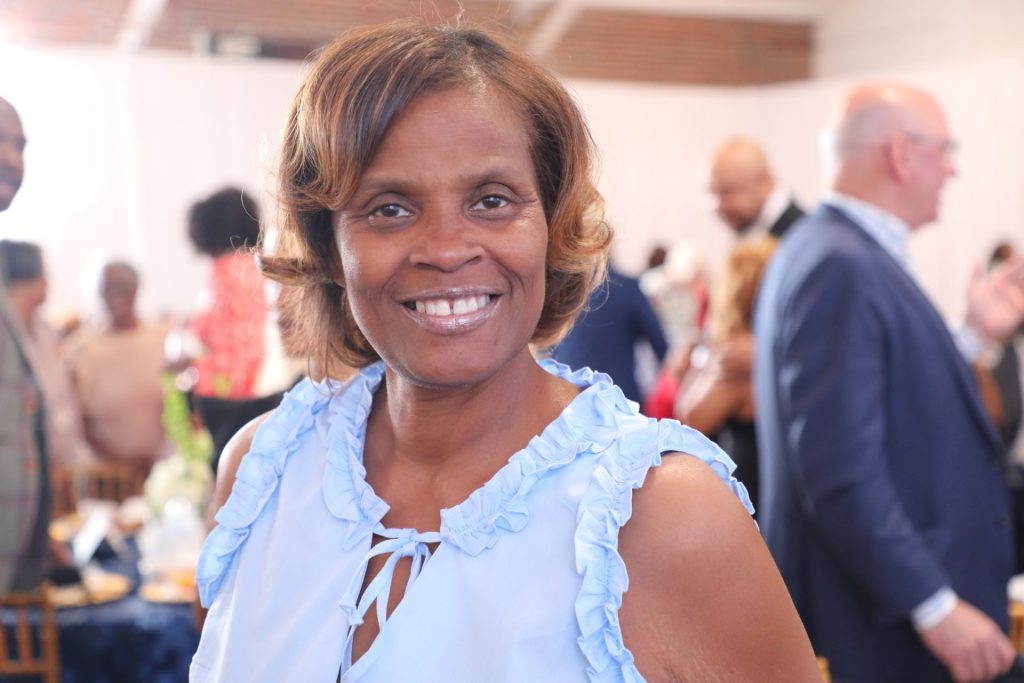
- $500,000 Hooper City Drainage Improvements
- $188,000 Fire Hydrant Project for Birmingport
- $30,000 Dololmite Recreation Center Improvements
- $100,000 for One Pratt Park Landscape improvements
- $100,000 for McAlpine Recreation Center Market
- $100,000 for various District 9 Park improvements
- $50,000 for District 9 sidewalk repairs
- $200,000 Homeowner facade improvements
- $200,000 Land Bank Authority title clearance
- $31,000 BEAT Housing initiative (Enon Ridge)
- $800,000 (split between districts 4 and 9) Health Housing Initiative
- $450,000 (split between districts 4, 6, 9) Roof hardening and repairs
- $100,000 North Birmingham Commercial District Beautification
- $50,000 Public Safety Cameras in District 9 Neighborhoods
- $20,000 Back to our Roots (Lotus)
- $50,000 Food Distribution and Delivery Service (Daniel Payne Legacy Foundation)
- $275,000 The Birmingham/Aspen Institute Justice and Governance Partnership (split between Districts 1, 6, 8, 9)
- $345,000 Birmingham Tool Bank (split between districts 1, 4, 6, 7, 8, 9)
- $305,000 Jones Valley Teaching Farm, Food Access Workforce Development (split between Districts 2, 4, 5, 6, 8, 9)